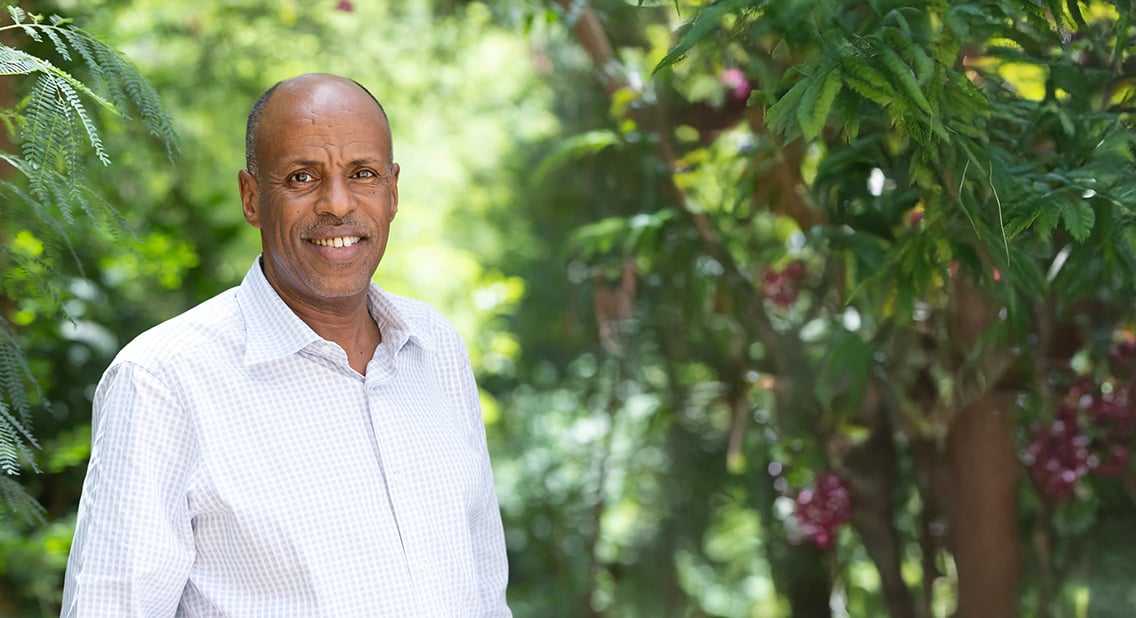Houssein Mahamoud Robleh has been building his business empire in Djibouti, the Kamaj Group, for 30 years. The company, with a turnover of $15m and employing over 500 people, is involved in real estate, hotels, logistics and energy. Its future headquarters, under construction in the Héron district, is a modern complex that will house the group’s offices as well as commercial spaces.
We meet CEO and founder Robleh sits on the terrace of the Acacias, his hotel overlooking the Gulf of Aden, where extension work is going on in full swing.
“The hotel is going to become a Novotel. We are expanding it and adding a spa and a gym,” he says.
At the end of 2020, he signed a partnership with Accor, a major international hotel group. The aim is to modernise the local hospitality industry and position Djibouti as a competitive regional travel destination.
To enrich the local hotel offer
Housed in a heritage building in the city centre, the Plein Ciel, which he bought in 2018, will be transformed into an M-Gallery by 2026, while a Pullman is planned by the sea.
Robleh’s plans include an investment of $30m, which aims to raise the standard of infrastructure and enrich the local hotel offer.
Although the pandemic delayed the project, work has finally resumed, with an opening planned in the next few years. Robleh reflects on his beginnings: “I returned to Djibouti in 1994, after studying economics in Reims, France, I could have joined the administration, like many young Djiboutian graduates, but I preferred to strike out on my own”.
At that time, after several years of civil war, the economy was still fragile. Robleh chose to go into real estate, a sector that was still underdeveloped, but where demand was strong.
The French army, in search of housing of European standards, represented an opportunity that he quickly seized. He founded the Kamaj Group, approached the general staff and convinced the army to entrust him with the management of its housing. He built housing that met their standards, which he provided on long-term leases. That was a successful gamble that began his rise to prosperity.
From 1995, he expanded Kamaj’s activities by integrating security, maintenance and rent management. This integrated model enabled him to strengthen his position and attract a wider clientele.
Enter the US
The 2000s marked a turning point: with the establishment of American bases, the demand for real estate exploded. Kamaj positioned itself in the furnished accommodation market and increased its investments in new infrastructure.
At the same time, frustrated by the lack of access to the international press, he decided in 2004 to import the world’s leading newspapers. “It didn’t make me the most money, but it was a necessity”, he acknowledges.
Another gamble was the Riyad market, abandoned for years, He decided to rehabilitate it into a structured centre, despite the prevailing scepticism. Through a great deal of work and development, the market came back to life and became a focal point of Djiboutian commerce. The hotel industry is following the same logic of anticipating demand. In 2011, a few years after the opening of the Kempinski, he inaugurated Les Acacias, an establishment designed to attract business and transit customers. In 2018, he bought the Plein Ciel hotel, located in the city centre, opposite the Presidency.
Looking beyond Djibouti
Robleh is not slowing down. With Kamaj Energie, he is developing a gas terminal in Damerjog, taking advantage of the expansion of port infrastructure. In real estate, he is going into mass housing. The aim is to respond to the shortage of residential property for the middle class. But his biggest challenge remains the completion of his tourism projects, notably an ongoing development on the Moucha Islands.
Beyond Djibouti, he keeps a close eye on opportunities in the sub-region, ready to capture new economic dynamics. At 58, Houssein Mahamoud Robleh says he is no longer content to build: he structures and shapes the markets in which he operates.
Crédito: Link de origem


